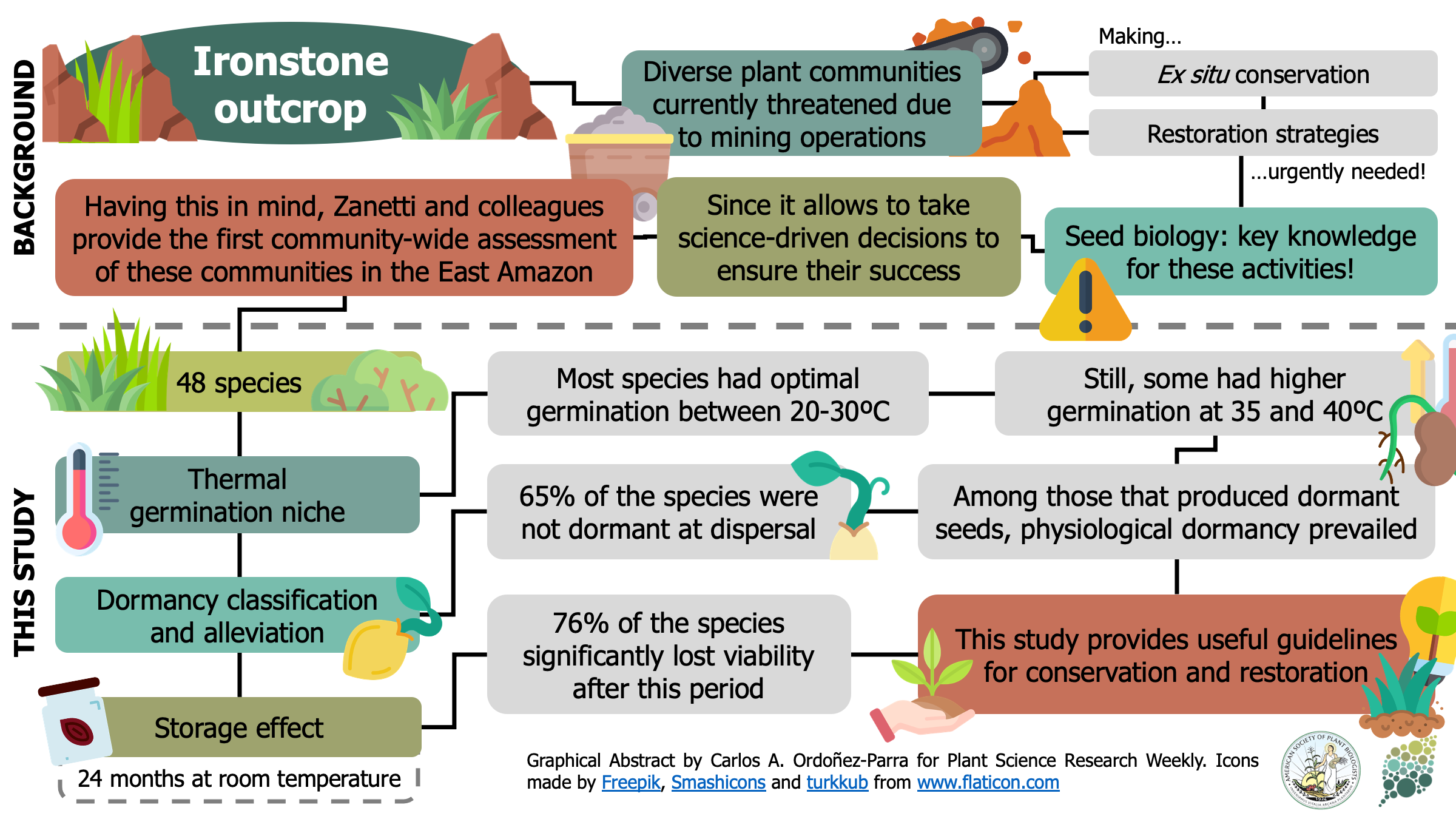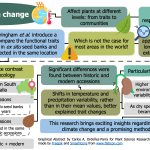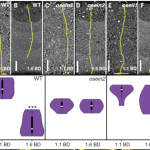Seed functional traits provide support for ecological restoration and ex situ conservation in the threatened Amazon ironstone outcrop flora (Front. Plant Sci.)

East Amazonian ironstone outcrops host highly diverse plant communities with impressive endemism levels (meaning the plants are found nowhere else), yet they are threatened by large-scale mining operations. As a result, proper conservation and restoration techniques are urgently needed to ensure their future. Zanetti and colleagues provide the first community-wide assessment of seed functional traits within these communities. Forty-eight species were analyzed to establish their thermal germination niche, assess the presence of dormancy, and test the effect of 24 months of storage. Most species produced non-dormant seeds and had their maximum germination between 20-30°C. After 24 months of storage under room temperature, 76% of the species experienced a significant reduction in viability; some of them had no viable seed after this period. This research provides promising guidelines for future conservation and restoration practices in ironstone outcrop communities and is an exciting starting point for seed ecology research in this ecosystem. (Summary by Carlos A. Ordóñez-Parra @caordonezparra) Front. Plant Sci. 10.3389/fpls.2020.599496



